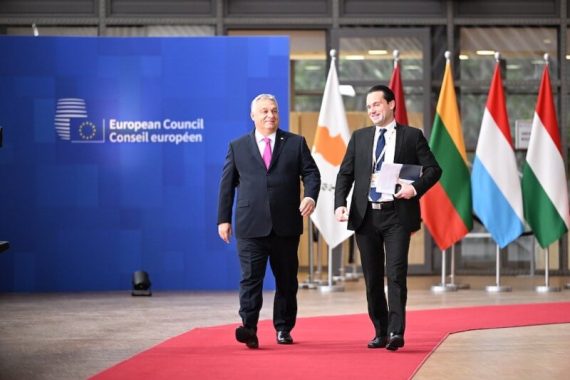I
n a statement, Hungarian Prime Minister Viktor Orban has declared that the European Union must not initiate membership discussions with Ukraine, marking a clear stance from Hungary on the burgeoning issue. This announcement comes ahead of the EU leaders’ meeting slated for mid-December, 2023, where they are expected to consider the European Commission’s recommendation for Ukraine to commence membership talks contingent upon meeting the requisite conditions.
Orban, holding power since 2010, emphasized that the ongoing financial dispute with Brussels—stemming from billions of euros in EU funds suspended over Hungary’s rule-of-law infractions—should not be conflated with Hungary’s position on Ukraine’s prospective EU accession talks. The Prime Minister vehemently stated that this matter is not a transactional issue and insisted that Hungary is entitled to the funds in question.
Amidst economic challenges, including stagnation and the highest inflation rates in Europe, peaking above 25% in the first quarter, Hungary’s financial dealings with the EU are under intense scrutiny. Orban’s government has had a history of conflicts with the European Union and its executive arm, particularly over tightening state control over various institutions and a controversial law impacting the LGBT community.
Status of Ukraine’s territory
Addressing the broader questions about Ukraine’s candidacy, Orban pointed to the complexities of considering EU membership for a country currently engaged in conflict, raising practical concerns over the indeterminate status of Ukraine’s territory and population due to the ongoing war.
As discussions continue, Orban has been vocal about the EU’s strategy towards the war in Ukraine, labeling it a failure and advocating for a secondary plan, given his belief that Ukraine will not triumph in the frontline battle against Russia. His remarks come at a critical time as the European Commission is pushing for unanimous member state support to bolster the long-term EU budget, particularly to maintain financial assistance to Ukraine.
Orban’s resistance to increased aid for Ukraine stands in stark contrast to other EU states’ positions, potentially positioning him as an opponent to further support for Kyiv. Other EU leaders have criticized Orban’s stance, urging that the EU should not be held “hostage” over financial support for Ukraine.
Disapproval of Orban’s approach
Luxembourg’s Prime Minister Xavier Bettel, among others, has expressed disapproval of Orban’s approach, especially in light of his recent meeting with Russian President Vladimir Putin. Orban, however, defends his dialogue with Moscow, asserting the importance of open communication channels.
As the EU summit in December approaches, member states are gearing up for decisive talks on the budget revision, with divergent views on how to effectively support Ukraine and enhance EU defense capabilities. A conclusive decision is anticipated at the summit, setting the stage for the EU’s fiscal and foreign policy trajectory in the coming year.
Sources: Reuters, Radio Free Europe, and Politico Europe
Recommended





